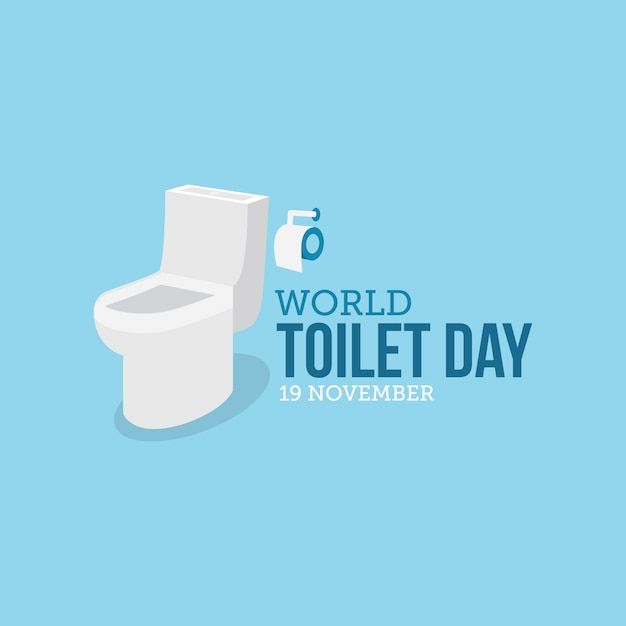“5 Shocking Facts About World Toilet Day That Will Change Your View on Sanitation”
What is World Toilet Day?
World Toilet Day is a global event celebrated annually on November 19th to raise awareness about the importance of proper sanitation and toilet facilities for public health. This observance was created to draw attention to the fact that billions of people around the world still lack access to clean and safe toilets, resulting in health risks and environmental issues. World Toilet Day advocates for the right of every individual to have access to a decent toilet and proper sanitation, which are essential for healthy living.
World Toilet Day was initiated by the World Toilet Organization (WTO) in 2001 and later recognized by the United Nations in 2013 as an official global observance. The day emphasizes the critical role sanitation plays in promoting public health, protecting the environment, and advancing gender equality.
History of World Toilet Day
The concept of World Toilet Day began in 2001, when the World Toilet Organization (WTO), a non-governmental organization, created the day to shed light on the growing sanitation crisis around the world. The goal was to bring together governments, organizations, and individuals to focus on solving sanitation-related issues and promoting access to clean toilets for all.
World Toilet Day gained significant recognition when the United Nations officially adopted it in 2013. The UN recognized the need for global efforts to address sanitation challenges and their impact on public health, gender equality, and sustainable development. Since then, the observance has become an important platform for raising awareness about sanitation issues, building political support, and mobilizing action to achieve Universal Access to Sanitation by 2030 as part of the UN’s Sustainable Development Goals (SDGs).
Significance of World Toilet Day
- Promotes Global Sanitation Awareness: World Toilet Day is crucial for raising awareness about the lack of access to proper sanitation and its consequences. Today, over 4.5 billion people worldwide still live without access to safely managed sanitation services, which can lead to the spread of diseases such as cholera and dysentery.
- Addresses Public Health Issues: Sanitation is directly linked to public health. Poor sanitation can result in contaminated water sources, causing life-threatening diseases that disproportionately affect children under the age of five. World Toilet Day highlights how essential it is to have access to clean, functional toilets to prevent the spread of disease.
- Advocates for Gender Equality: Women and girls are especially vulnerable to sanitation issues. Lack of access to safe toilets exposes them to the risk of harassment, violence, and poor menstrual hygiene management. World Toilet Day advocates for gender-sensitive sanitation solutions to ensure that women and girls are protected and empowered.
- Encourages Sustainable Development: Sanitation is not only a health issue but also an environmental one. Improper disposal of waste can pollute the environment, harming ecosystems and communities. World Toilet Day underscores the importance of sustainable sanitation solutions that protect natural resources and help in achieving environmental sustainability.
- Raises Political and Financial Support: By observing World Toilet Day, governments, NGOs, and individuals are encouraged to allocate resources, create policies, and take concrete actions to ensure access to clean sanitation for all. It is a day to demand action from policymakers to prioritize sanitation as a key aspect of public infrastructure and development.
Impacts on Daily Life
World Toilet Day may seem like an event focusing on an often overlooked aspect of daily life, but its impact is significant and felt globally:
- Improved Public Health: Clean toilets prevent the spread of diseases, reduce mortality rates, and increase life expectancy, particularly in low-income areas.
- Increased Awareness of Hygiene: The day helps to foster better hygiene practices, such as washing hands after using the toilet, which can drastically reduce the spread of diseases like diarrhea.
- Access to Safe Sanitation: World Toilet Day brings attention to communities that lack basic sanitation facilities. It has been instrumental in encouraging the construction of affordable and safe toilet facilities in underserved regions.
- Environmental Impact: By promoting proper waste management, the day encourages practices that prevent environmental contamination, protect water sources, and reduce pollution.
- Empowering Women and Girls: With access to safe and private toilets, women and girls experience greater dignity, security, and freedom, particularly during menstruation. It supports their ability to stay in school, go to work, and participate fully in society.
Important Facts about World Toilet Day
- Global Sanitation Crisis: Over 4.5 billion people globally still lack access to safely managed sanitation services, contributing to major health and social issues.
- Health Risks: Every year, around 829,000 people die from diarrheal diseases caused by poor sanitation and contaminated water.
- Gender Impact: In many parts of the world, the absence of safe toilets disproportionately affects women and girls, making them more vulnerable to violence, health issues, and social exclusion.
- Sustainable Development Goal (SDG): The United Nations has made sanitation a priority in its Sustainable Development Goals, aiming to achieve universal access to sanitation by 2030.
- Toilets as a Development Indicator: Access to proper sanitation is considered a major indicator of a country’s development and quality of life.
Frequently Asked Questions (FAQs)
1. Why is World Toilet Day important?
World Toilet Day is vital because it brings attention to the sanitation crisis affecting billions of people around the world. Access to safe toilets is crucial for public health, gender equality, and environmental sustainability.
2. How can I contribute to World Toilet Day?
You can contribute by raising awareness, supporting organizations that work to improve sanitation access, and taking part in local events or campaigns dedicated to improving sanitation in your community.
3. What are the main goals of World Toilet Day?
The main goals are to raise awareness about sanitation issues, advocate for the right to clean and safe toilets for all, and encourage sustainable, gender-sensitive sanitation solutions worldwide.
4. How does poor sanitation affect children?
Poor sanitation leads to the spread of diseases like diarrhea, which is one of the leading causes of death in children under five. Lack of proper sanitation also affects children’s education and well-being, as they often miss school due to illness or lack of hygiene facilities.
5. How can improving sanitation contribute to gender equality?
Access to safe, private toilets allows women and girls to manage menstruation with dignity, reduces the risk of gender-based violence, and supports women’s participation in education, work, and public life.
Wishing on World Toilet Day
On November 19th, we come together to raise awareness about the sanitation challenges that still affect billions of people. World Toilet Day is not just about toilets—it’s about dignity, health, and equal opportunities for everyone, everywhere. Let’s celebrate this day by promoting proper sanitation, raising awareness, and working toward a future where everyone can access clean, safe toilets.
The Importance of World Toilet Day for Society
World Toilet Day highlights a critical issue that affects health, dignity, and social progress. By raising awareness and mobilizing action, we can ensure that everyone—regardless of their location, gender, or economic status—has access to proper sanitation. It is a day to reflect on the simple yet essential role that toilets play in shaping our world and creating a healthier, more equal society for all.










